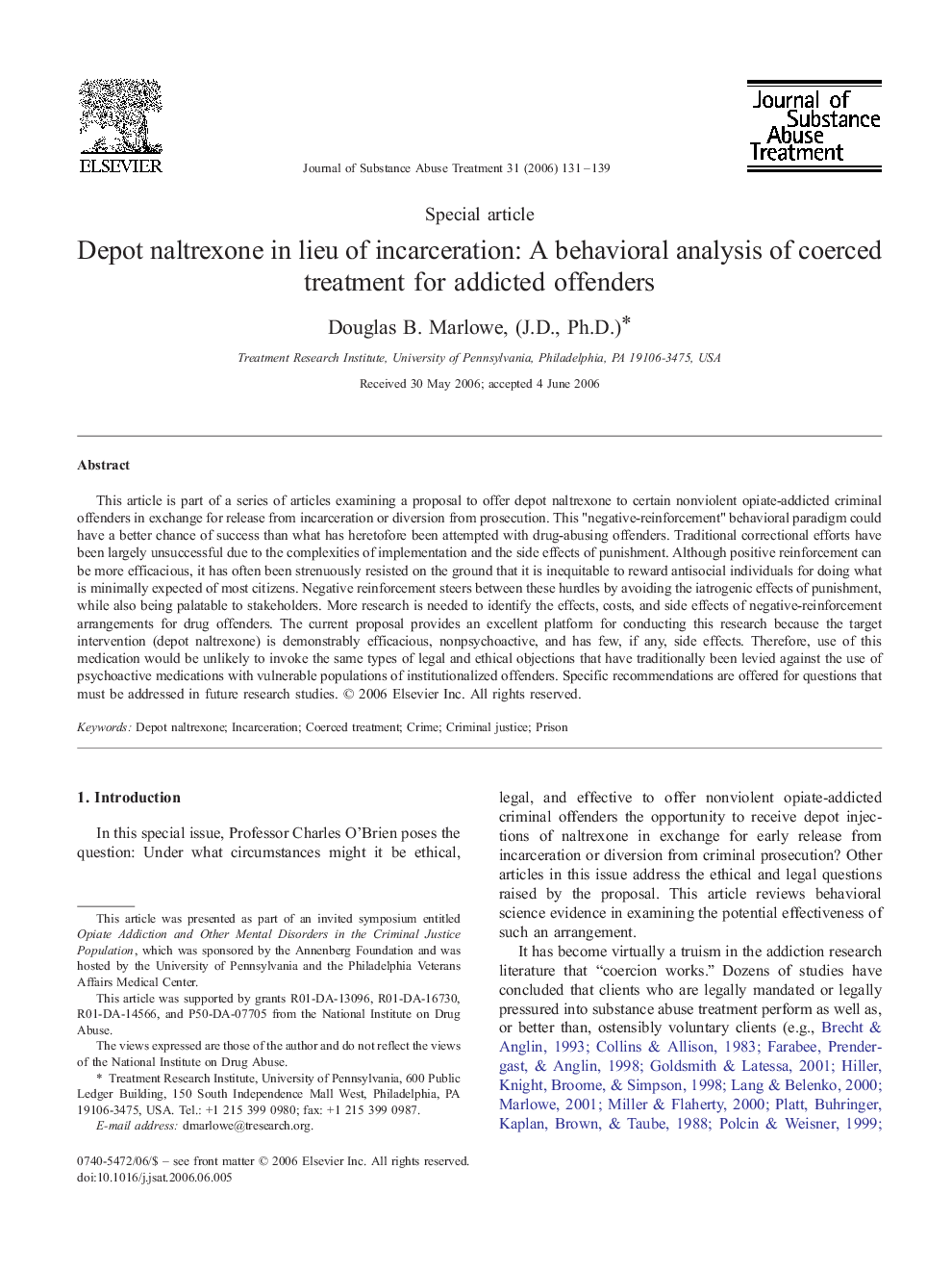| Article ID | Journal | Published Year | Pages | File Type |
|---|---|---|---|---|
| 330143 | Journal of Substance Abuse Treatment | 2006 | 9 Pages |
This article is part of a series of articles examining a proposal to offer depot naltrexone to certain nonviolent opiate-addicted criminal offenders in exchange for release from incarceration or diversion from prosecution. This "negative-reinforcement" behavioral paradigm could have a better chance of success than what has heretofore been attempted with drug-abusing offenders. Traditional correctional efforts have been largely unsuccessful due to the complexities of implementation and the side effects of punishment. Although positive reinforcement can be more efficacious, it has often been strenuously resisted on the ground that it is inequitable to reward antisocial individuals for doing what is minimally expected of most citizens. Negative reinforcement steers between these hurdles by avoiding the iatrogenic effects of punishment, while also being palatable to stakeholders. More research is needed to identify the effects, costs, and side effects of negative-reinforcement arrangements for drug offenders. The current proposal provides an excellent platform for conducting this research because the target intervention (depot naltrexone) is demonstrably efficacious, nonpsychoactive, and has few, if any, side effects. Therefore, use of this medication would be unlikely to invoke the same types of legal and ethical objections that have traditionally been levied against the use of psychoactive medications with vulnerable populations of institutionalized offenders. Specific recommendations are offered for questions that must be addressed in future research studies.
